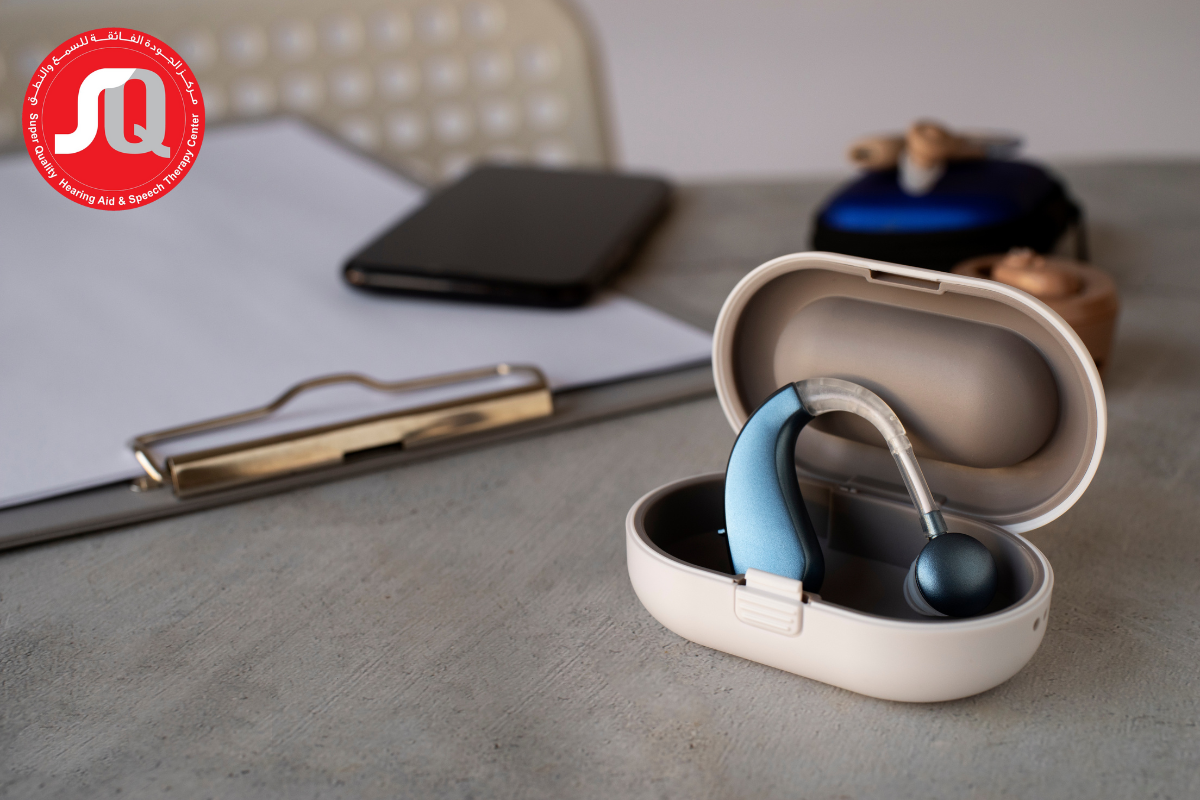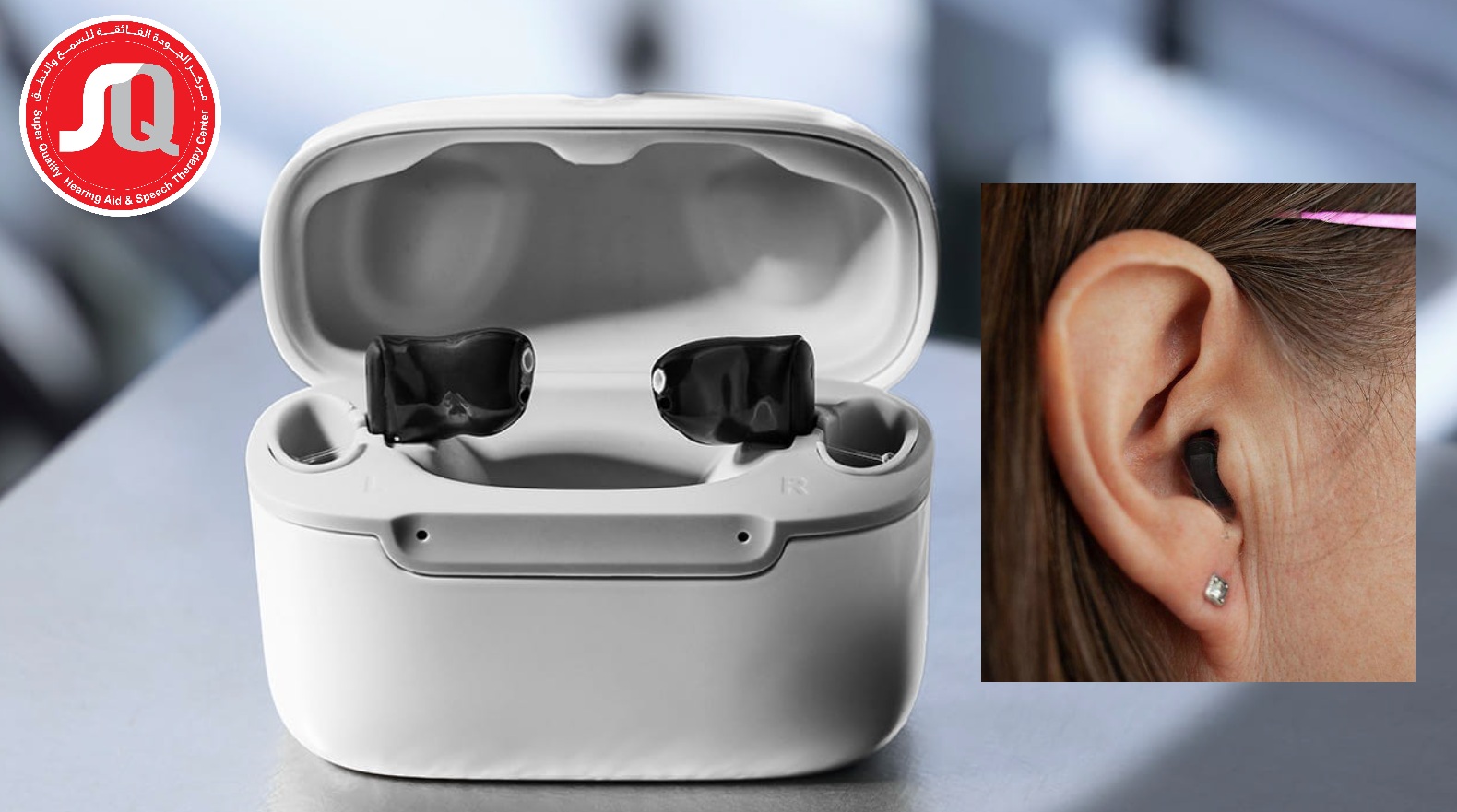Choosing the right hearing aid is an important decision that directly impacts your daily comfort, mobility, and overall hearing experience. With advancements in hearing technology, you now have two main options to choose from — rechargeable hearing aids and battery-operated hearing aids. While both are designed to improve your hearing, they differ in terms of convenience, cost, maintenance, and performance.
In this guide by Super Quality Hearing Aid & Speech Therapy Center, we’ll help you understand the pros and cons of each type so you can make an informed decision.
Understanding the Basics
Before diving into the differences, let’s define what these devices are:
- Rechargeable Hearing Aids: These come with built-in batteries that can be charged regularly, usually overnight.
- Battery-Operated Hearing Aids: These use disposable zinc-air batteries that need to be replaced every few days or weeks, depending on usage.
Although both types serve the same purpose, your lifestyle, budget, and personal preferences may influence your choice.
Advantages of Rechargeable Hearing Aids
Rechargeable hearing aids are gaining popularity for good reason. Here’s why:
- Eco-Friendly: Since there’s no need to dispose of batteries regularly, these aids are better for the environment.
- Convenience: No more fumbling with tiny batteries. Just plug them in overnight.
- Cost-Effective Over Time: Although the upfront cost is higher, you save money on buying batteries in the long run.
- User-Friendly: Ideal for seniors or those with dexterity issues, as there’s no need to handle small components.
In addition, modern rechargeable hearing aids often come with advanced features such as Bluetooth connectivity and automatic adjustments.
Disadvantages of Rechargeable Hearing Aids
However, they’re not perfect for everyone. Some limitations include:
- Higher Initial Cost: The upfront price can be a barrier.
- Dependency on Power Source: If you forget to charge them or there’s a power outage, you may face inconvenience.
- Limited Battery Life: After a few years, the internal battery may need to be replaced by a professional.
Therefore, if you travel frequently or don’t have regular access to electricity, rechargeable options might not be ideal.
Advantages of Battery-Operated Hearing Aids
Battery-powered hearing aids have been around for decades and continue to be reliable choices. Here’s why many still prefer them:
- Lower Initial Cost: They’re generally more affordable upfront.
- Easy Battery Replacement: You can carry spare batteries and replace them anytime.
- Longer Usage in One Go: Some batteries last up to 10 days, depending on usage.
Because of their flexibility, battery-operated hearing aids are ideal for those who travel or spend time in areas with limited electricity access.
Disadvantages of Battery-Operated Hearing Aids
Despite the flexibility, there are also some drawbacks:
- Ongoing Costs: You’ll need to purchase batteries regularly, which adds up over time.
- Less Eco-Friendly: Disposing of batteries contributes to environmental waste.
- Manual Handling: Replacing batteries can be difficult for users with vision or dexterity issues.
However, some users still prefer this option due to its reliability and easy power management.
Performance Comparison
Both types of hearing aids offer great performance, but the experience can differ:
- Sound Quality: Modern models of both types offer excellent sound clarity.
- Connectivity: Rechargeable hearing aids often include wireless features.
- Power Management: Battery-powered aids allow you to manage usage manually, while rechargeable aids automate the process.
Therefore, your lifestyle needs play a crucial role in determining which model suits you better.

Which Is Right for You?
Here’s a quick guide to help you decide:
Choose Rechargeable Hearing Aids if you:
- Prefer hassle-free charging over frequent battery changes.
- Want an eco-conscious and modern solution.
- Have reduced finger dexterity or visual limitations.
- Don’t mind higher upfront costs for long-term savings.
Choose Battery-Operated Hearing Aids if you:
- Travel frequently and can’t always charge your device.
- Prefer a lower initial cost.
- Are comfortable handling small parts and replacing batteries.
Each individual has different hearing needs and lifestyles. At Super Quality Hearing Aid & Speech Therapy Center, we guide you through the selection process to ensure you get the best solution.
Maintenance and Care Tips
Regardless of your choice, regular care ensures optimal performance:
- Clean your hearing aids daily
- Keep devices away from moisture
- Check battery or charging levels often
- Store them in a dry, cool place
- Schedule routine check-ups with your audiologist
Additionally, ensure that you have a backup plan in place in case of power outages or emergencies.
Expert Recommendation
As professionals in the field, we generally recommend rechargeable hearing aids for users who prioritize convenience and modern features. However, battery-operated hearing aids still offer great value for those who want flexibility and lower initial costs.
Therefore, always consider your hearing lifestyle, usage frequency, and travel habits before making a decision.
FAQs: Rechargeable vs. Battery-Operated Hearing Aids
Yes, they usually have a higher upfront cost, but they save money over time as you won’t need to buy batteries.
Most models last 18–30 hours per full charge, depending on usage and features like Bluetooth.
Yes, but it depends on the model. You may need to purchase a new device if your current one doesn’t support recharging.
Rechargeable hearing aids are more environmentally friendly since they reduce battery waste.
You won’t be able to use them until they are recharged. Carrying a backup or power bank is advisable during travel.
Some hybrid models are available, but they’re less common. Consult your audiologist for recommendations.
Rechargeable hearing aids are usually better for seniors due to ease of use and fewer small parts to handle.
Both types offer excellent sound quality. The difference usually lies in features and battery performance.


Leave a Reply